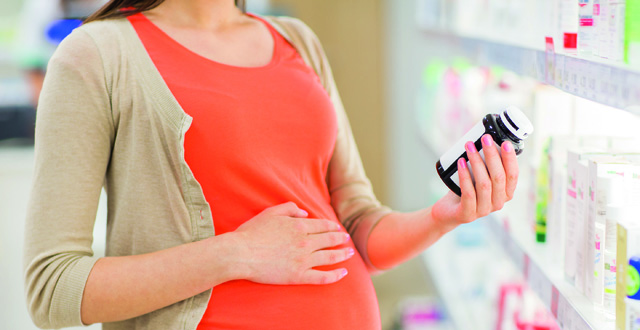Much remains unknown about how Covid-19 affects pregnant women and their unborn babies, writes Niamh Cahill
The good news is that research studies are emerging from China and other countries on the topic of Covid-19 in pregnant women, helping to shed light on the risks for the group.
The bad news is that, as clinicians try to make sense of the new literature, they are also being swamped by overwhelming amounts of information on the virus.
As this is a new virus, much of the detail on its impact in pregnancy has not been reported yet.
What we do know is pregnancy is a “state of partial immune suppression”, according to Dr Keelin O’Donoghue, Consultant Obstetrician at Cork University Maternity Hospital (CUMH) and Principal Investigator at University College Cork’s (UCC) INFANT Research Centre.

This means that pregnant women are more vulnerable to viral infections, and therefore more likely to have a severe illness. This has already been shown to be the case with SARS-CoV, MERS-CoV and influenza.
To date, however, there is no evidence to suggest that pregnant women with Covid-19 have more serious illness than non-pregnant adults, says Dr O’Donoghue.
“At the moment, in the literature we are not seeing the SARS and H1N1 influenza (swine flu) effects in pregnancy.”
In women affected by SARS, for example, there was a higher pregnancy loss rate and more pregnancy complications were reported.
It is reasonable to predict that pregnant women might be more at risk for severe illness, morbidity or mortality compared with the general population, as is observed with other related coronavirus infections.
However, Dr O’Donoghue also points out that we do not have all the international data yet, and most of the available reports on pregnant women with Covid-19 relate to those in the second and third trimester of pregnancy.
“We are not yet seeing data from women in the first trimester who develop Covid-19. Does Covid-19 increase the miscarriage rate? We just don’t know.”
Pregnant women who develop a fever, or who have a serious illness in their first trimester of pregnancy, are considered to have an increased risk of miscarriage, according to Dr O’Donoghue. Studies are not yet available to show if this is the case with Covid-19.
Difficulties
The lack of data creates difficulties for clinicians in advising pregnant women, outlines Dr O’Donoghue.
Understandably, little research has yet emerged from Italy on how the virus affects pregnant women and their babies, as healthcare workers there struggle to save lives, Dr O’Donoghue notes.
She hopes that all countries will publish studies to help inform advice for pregnant women, across all trimesters of pregnancy and post-partum.
The UK Obstetric Surveillance System (UKOSS) has announced a ‘Covid-19 in pregnancy’ study for March 2020-2021, which hopes to rapidly report outcomes for pregnant women.
“We don’t have all the information yet but because of the small numbers reported so far, we have to assume that pregnant women are an at-risk group, even without the evidence,” says Dr O’Donoghue.
There have been reports of a small number of newborns testing positive for the virus. The guidance published by the Institute of Obstetricians and Gynaecologists (IOG) on 3 April states there is emerging evidence that vertical transmission is “probable”. However, “the proportion of pregnancies affected and the significance to the neonate has yet to be determined”, the guidance outlines.
Furthermore, the guidance notes that “there are currently no data on perinatal outcome when the infection is acquired in the first and early second trimester of pregnancy”.
The guidance also advises that “pregnant women should have one birthing partner with them in labour, unless this partner is symptomatic or unwell, irrespective of the woman’s Covid-19 status”.
It further states that pregnant healthcare workers should be allocated to patients and duties that “reduce exposure to patients with, or suspected to have, Covid-19 infection”.
“It is specifically recommended to avoid rostering pregnant staff to Covid-specific units or wards, and redeployment to lower-risk duties should be considered. Those pregnant staff who also have underlying medical conditions should discuss with their treating obstetrician, as redeployment or working from home may be further advised.”
An International Society of Ultrasound in Obstetrics and Gynaecology (ISUOG) paper, which extracted available data internationally from other papers on Covid-19 in pregnancy, found 32 pregnant women with Covid-19, delivering 30 babies.
Seven women were asymptomatic and two were admitted to the intensive care unit (ICU), with one in a critical condition requiring mechanical ventilation, including extracorporeal membrane oxygenation (ECMO).
No maternal deaths from the virus have been reported to date, according to the paper.
Titled Coronavirus in pregnancy and delivery: Rapid review, the paper notes: “Delivery was by Caesarean section in 27 cases and by vaginal delivery in two, and 15 (47 per cent) delivered preterm. There was one stillbirth and one neonatal death.”
Based on limited data available, the authors concluded that compared with SARS and MERS (two other types of coronavirus), Covid-19 appears “less lethal”.
While the literature has recorded just 32 pregnant women with Covid-19, anecdotal reports from medical professionals in impacted countries outside Ireland suggests there are many more pregnant women who have been affected, some seriously, according to Dr O’Donoghue.
In the UK, pregnant women have been advised to reduce social contact by Government.
The Royal College of Obstetricians and Gynaecologists (RCOG) in response said the measure was “purely precautionary” and aimed to reduce the theoretical risk of preterm birth and to the baby’s growth, should the woman become unwell.
It added: “There is currently no new evidence to suggest that pregnant women are at greater risk from coronavirus (Covid-19) than other healthy individuals, or that they can pass the infection to their baby while pregnant.”
The latest version of the RCOG guidance reiterates the UK Chief Medical Officer’s advice that “it would be prudent for pregnant women to increase their social distancing to reduce the risk of infection”, but advises pregnant women to attend their routine antenatal care.
Young children
Pregnant women and mothers of young children can take comfort in the fact that Covid-19 in paediatric patients appears to be much milder than in adults, according to the RCPI IOG guidance.
“By contrast with findings in adults, children with Covid-19 had milder clinical manifestations; nearly half of paediatric patients reported have been asymptomatic (35).
“The youngest individual to have documented infection with Covid-19 was a 36-hour-old neonate born by Caesarean delivery, suggesting neonatal rather than vertical transmission. A news report of a baby of a Covid-19-infected mother testing positive at 30 hours after delivery has not been reported in a scientific journal.”
Breastfeeding
There is currently insufficient evidence regarding the safety of breastfeeding and the need for mother/baby separation. Thus far, international guidelines differ on what is advised for breastfeeding mothers.
A fact sheet from the Organisation of Teratology Information Specialists (OTIS) answers questions on breastfeeding and Covid-19.
It states: “Women are often encouraged to continue breastfeeding or providing breast milk even when they are sick with a virus, such as the flu. Information about Covid-19 in breastfeeding women is limited at this time, but no virus was found in milk samples provided by a small number of women with Covid-19.
“Women who are breastfeeding while sick with Covid-19 can help protect their babies from infection by washing their hands frequently and wearing a face mask while nursing. They can also consider pumping milk for someone else to feed their baby while they recover, especially if their illness requires them to be separated from their infant after delivery or at any other time.”
Pregnancy loss
Dr O’Donoghue says it is important for healthcare staff and the general population to remember that all the realities of pregnancy continue, despite a pandemic.
Sadly, this means there will still be those who experience pregnancy loss, or the end of a pregnancy at this time, in our maternity hospitals.
This is why advice on women who suffer pregnancy loss has recently been provided by the pregnancy loss team at CUMH, supported by the HSE.
“In your grief, the social distancing requirements of Covid-19 management may further increase feelings of isolation,” according to information from the HSE.
Women who have experienced pregnancy loss are advised to reach out and talk to others, and the HSE reassures them it will continue to care “during these challenging times”.
Healthcare workers
Singapore has to date reported low rates of Covid-19 infection in healthcare workers.
This is because of its experience with the SARS epidemic in 2003, and the reshaping of healthcare facilities at the time. Then, 33 people died out of 238 confirmed cases and healthcare workers accounted for 40 per cent of these cases. Worldwide, healthcare workers comprised 21 per cent of cases of SARS.
When Covid-19 emerged in Singapore, “healthcare officials took different approaches that Ireland can learn from,” Dr O’Donoghue says, and notably only around 2 per cent of their Covid-19 cases are in healthcare workers. This is why personal protective equipment (PPE) is essential for healthcare workers in keeping them healthy and virus-free.
Clinicians working in maternity services in Ireland stay constantly updated on international data and experience, especially in these challenging times, to provide the best possible care for pregnant women and their babies.
“Their health and wellbeing during and after pregnancy remains our priority,” Dr O’Donoghue says.
The guidance is updated as new data becomes available and has already been updated after it was first published on 3 April. The latest guidance, as of 10 April, is available at: https://rcpi-live-cdn.s3.amazonaws.com/wp-content/uploads/2020/04/COVID19-pregnancy-Version-2.0-1-KOD.pdf. The above article was written based on 3 April guidance.












Leave a Reply
You must be logged in to post a comment.